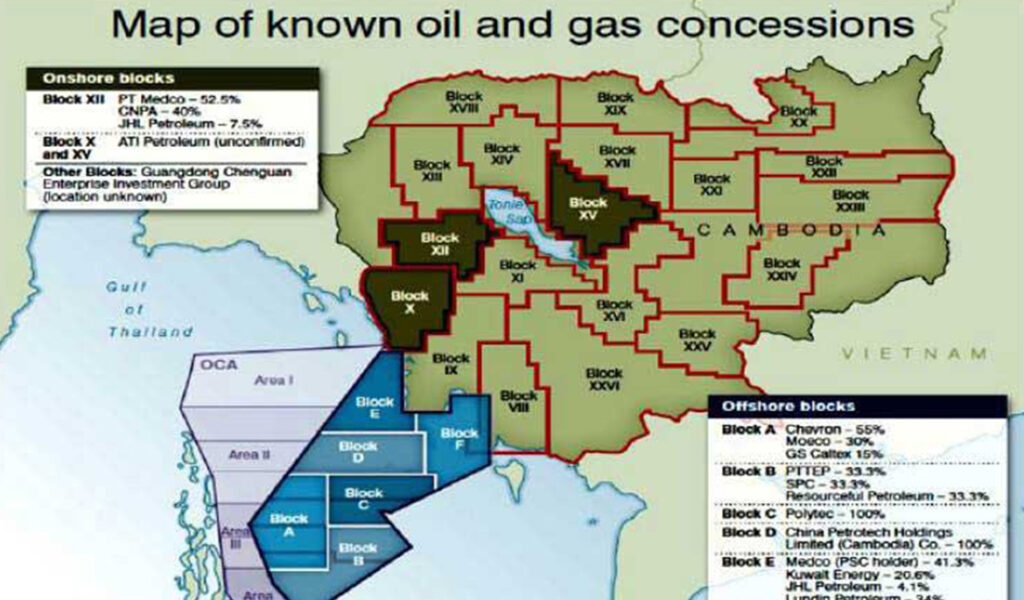The Petroleum Institute of Thailand has renewed its call that Cambodia and Thailand resume talks on joint development for oil and gas in the Overlapping Claims Area (OCA) as there was no progress on talks despite positive signals at the prime ministerial level early this year.
The 26,000-sq km OCA in the Gulf of Thailand, reportedly containing huge reserves of oil and gas, has remained a contentious issue between the two countries for long. During Prime Minister Hun Manet’s visit to Thailand last February, both sides had reached an agreement to resume the talks aimed at joint development.
Former Thai Prime Minister Srettha Thavisin was eager to make progress on a deal to develop the area jointly and he stated the same in Thailand’s Parliament in January.
Thailand’s new Prime Minister Paetongtarn Shinawatra is expected to follow the policy of Thavisin in this regard and give the go-ahead for the talks on OCA.
According to a report in Bangkok Post, the Petroleum Institute has renewed its efforts in pushing energy and foreign affairs authorities in Thailand to engage in talks with Cambodia on joint production in OCA as there has been no progress on the issue since the agreement between the two Prime Ministers to launch talks in February.
Sources at the Government House in Thailand also confirmed a lack of progress in the talks, according to the report.
“If Thailand and Cambodia work together to ensure successful negotiations, they will have access to a new energy source that can provide energy security for both countries,” said Kurujit Nakornthap, executive director of the Petroleum Institute of Thailand, according to Bangkok Post.
Kurujit was of the view that the disagreement on maritime territories between Thailand and Cambodia could be addressed through negotiations.
Thailand previously had a similar territorial dispute with Vietnam. The problem was settled in August 1997, paving the way for the development of offshore gas production five years later, he pointed out, according to the report.
Thailand has not developed a new oil and gas field for more than 15 years, raising concerns in the country over declining domestic gas supplies, which will force the country to import more liquefied natural gas (LNG).
A 2001 MoU between Thailand and Cambodia outlined a framework to settle the dispute, but in 2009, amid tension between the two countries, the Thai Cabinet unilaterally scrapped the MoU, adding further uncertainty on how to solve the dispute.
In 2014, Cambodia formed a special OCA committee headed by the then Deputy Prime Minister and Senior Minister for Border Affairs to negotiate the matter with the Thai government.
Regarding OCA, energy experts point out that even with a 50-50 revenue sharing model, reportedly mooted by Cambodia in previous talks, Thailand would be the largest beneficiary, primarily due to the country having a more developed oil and gas industry.
According to the experts, a Joint Development Area (JDA) within OCA seems to be the only realistic solution for both countries to develop and manage the huge energy reserves.
As Cambodia and Thailand recently elevated their diplomatic ties to a ‘strategic partnership,’ it could open more avenues for closer cooperation for mutual benefits, including on OCA.
But there is also increasing pressure from the renewable energy lobby of late not to launch new oil fields. Even energy businesses now prefer renewable energy as these can attract trade tariff benefits for promoting clean energy.



